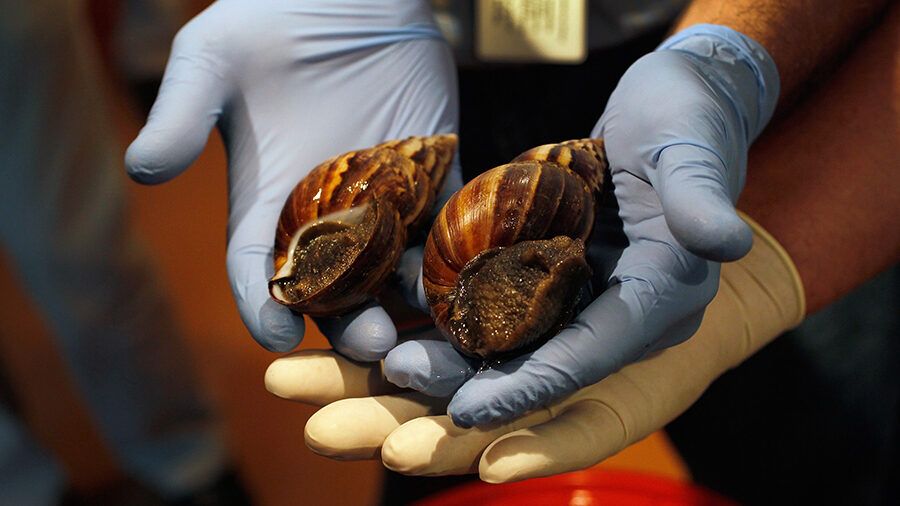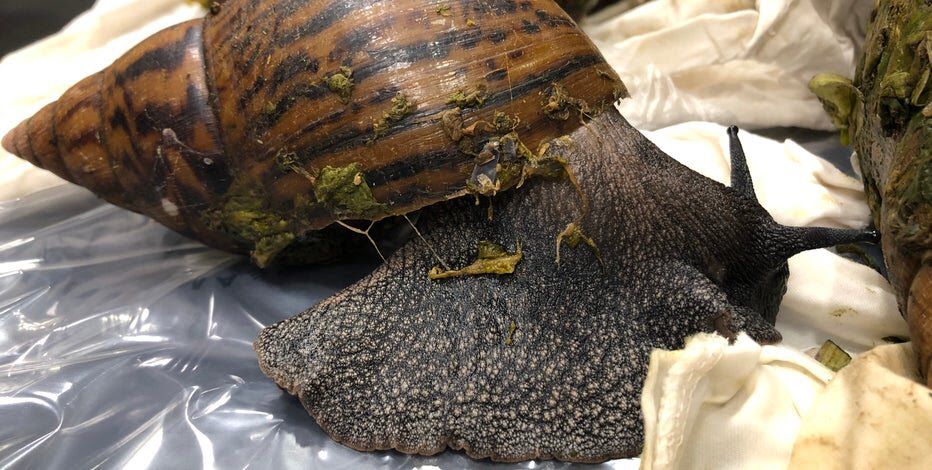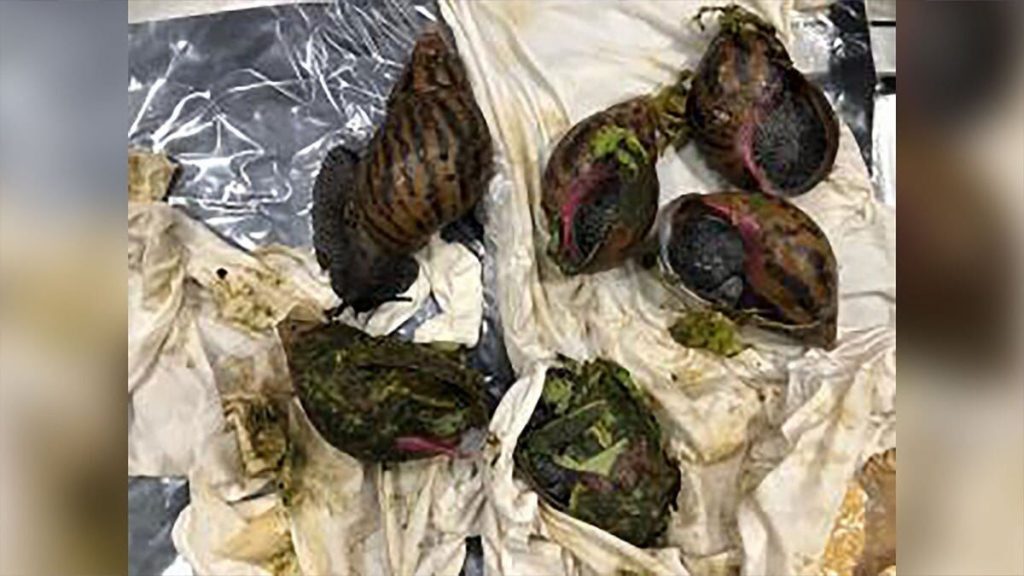
Six enormous African snails were found in a passenger’s luggage by customs officials at the Detroit Metropolitan Airport, which is deemed unusual and possibly dangerous.
According to a US Customs and Border Protection news release on Friday, the snails, which were alive, were discovered in the traveler’s suitcase who had flown into Detroit from Ghana in west Africa.
The news release stated that the critters are classified as “prohibited organisms” in the US due to their potential to infect humans with diseases and to significantly harm the environment if released into the wild.
Despite this, people eat snails all over the world and in some places keep them as pets.
“Our CBP officers and agriculture specialists work diligently to target, detect, and intercept potential threats before they have a chance to do harm to U.S. interests,” said port director Robert Larkin in the news release.
“The discovery of this highly invasive pest truly benefits the health and well-being of the American people.”

The snails, which are indigenous to east Africa, can get up to 8 inches long. An organism known as rat lungworm, which can cause meningitis in humans, could come be found in giant African snails.
Also, they consume at least 500 different kinds of plants and they even eat plaster and stucco off of houses as a calcium source, which might cause environmental harm if released into the wild, according to Customs and Border Protection.
Officials discovered a rapidly expanding population of the snails in July, at which point a Florida county was quarantined. It was believed that the population came from the illicit pet trade.

It took ten years, millions of dollars, and a lot of effort to completely eradicate a giant African snail population that had been discovered in Miami-Dade County. The population of the snails is challenging to manage because they can lay up to 2,500 eggs per year.
Author-Roberta Appiah





